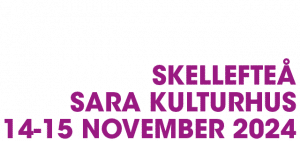
’Mänskliga rättigheter, fred och sanning – fredsbyggande utbildning’ arranged by Fonden för mänskliga rättigheter.
Photo: Gwendolina Gerard
In 2016, after 50 years of violent armed conflict in Colombia, a peace agreement was finally signed between the Colombian government and the former Revolutionary Armed Forces of Colombia. This agreement established the Comprehensive System of Truth, Justice, Reparation, and Non-Repetition.
Colombia’s Comprehensive System of Truth, Justice, Reparation, and Non-Repetition consists of several commissions, jurisdictions, and units. One of which being The Truth, Coexistence, and Non-Repetition Commission (ICIP). In accordance with the 2016 peace agreement, ICIP was tasked with clarifying patterns of human rights violations in the conflict and to ensure the non-repetition of violence. For their report, the commission collected 30 000 testimonies from Colombian civil society including statements regarding political participation, drug policy, security models, violence, and culture for peace and education.
How is violence cultured? What is the common narrative that justifies its perpetuation? How do we change discourses that justify violence?
The Truth Commission’s final report consists of ten chapters, and reading it can be painful
According to the speakers, an important cornerstone is education, which breeds cultural heritage and helps victims understand their rights. In a country where formal education is difficult to achieve due to poor conditions, making budgetary and regulatory adjustments for peace education and allowing room for cultural expression is of utmost importance. The Truth Commission’s final report consists of ten chapters, and reading it can be painful. But Mariana Lopez Campagnioli, ICIP, explains that it is crucial that these documentations become widespread and shared in communities to ensure their viability. For instance, cycles of reading have been organized and promoted in schools and rural communities.
One particularity of the Colombian Truth Commission compared to other truth commissions in the world, is that ICIP created a media platform where one can listen to podcasts, visit digital museums, or watch documentaries. After all, one lesson learned during the peace steps was that ”victims must be at the center of the process” – Mariana Lopez Campagnioli.
Swedish member of parliament Janine Alm Ericson (MP) has visited the region several times and notes that the environment in Colombian refugee camps is still very violent. ”The role of civil society and embassies is to make the peace process come alive” she says. ”I can say that I’m proud to support the peace process and the Truth Commission.”.
Text: Gwendolina Gerard

